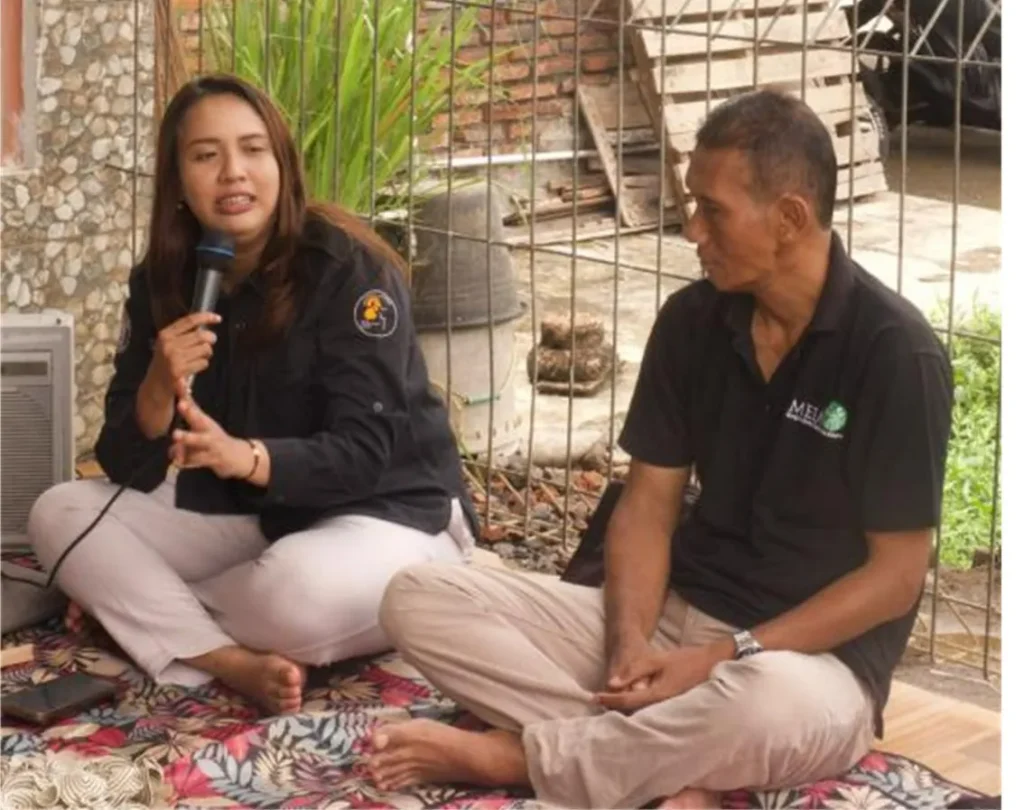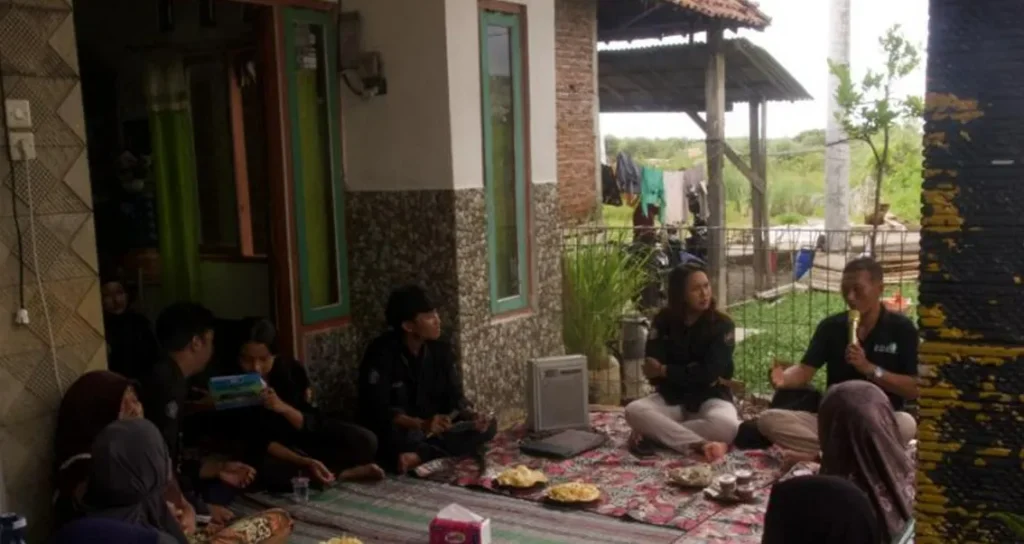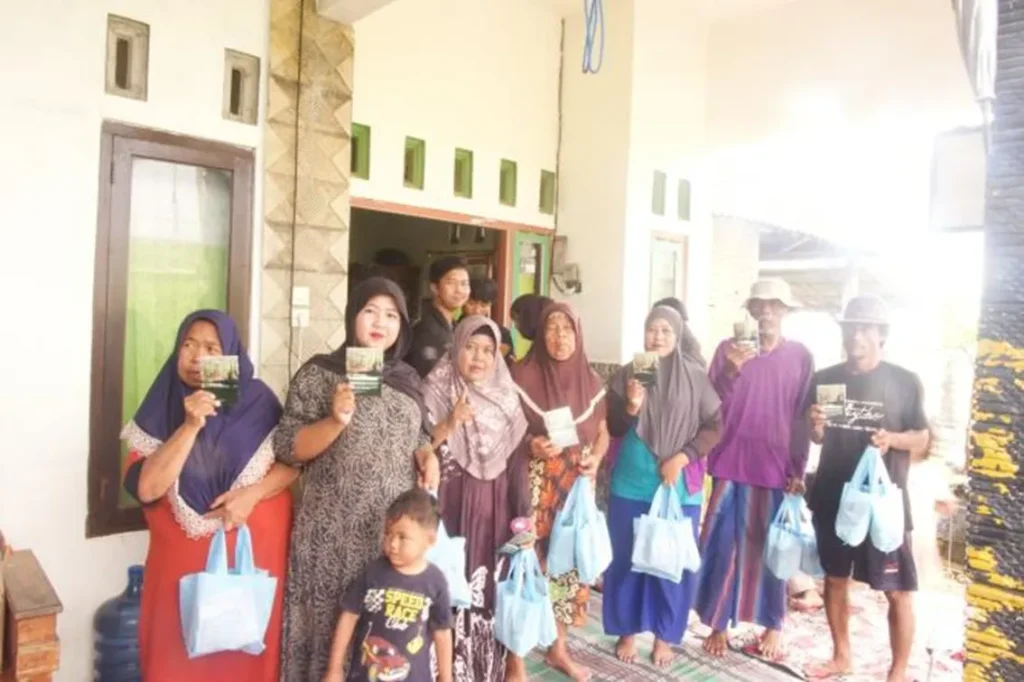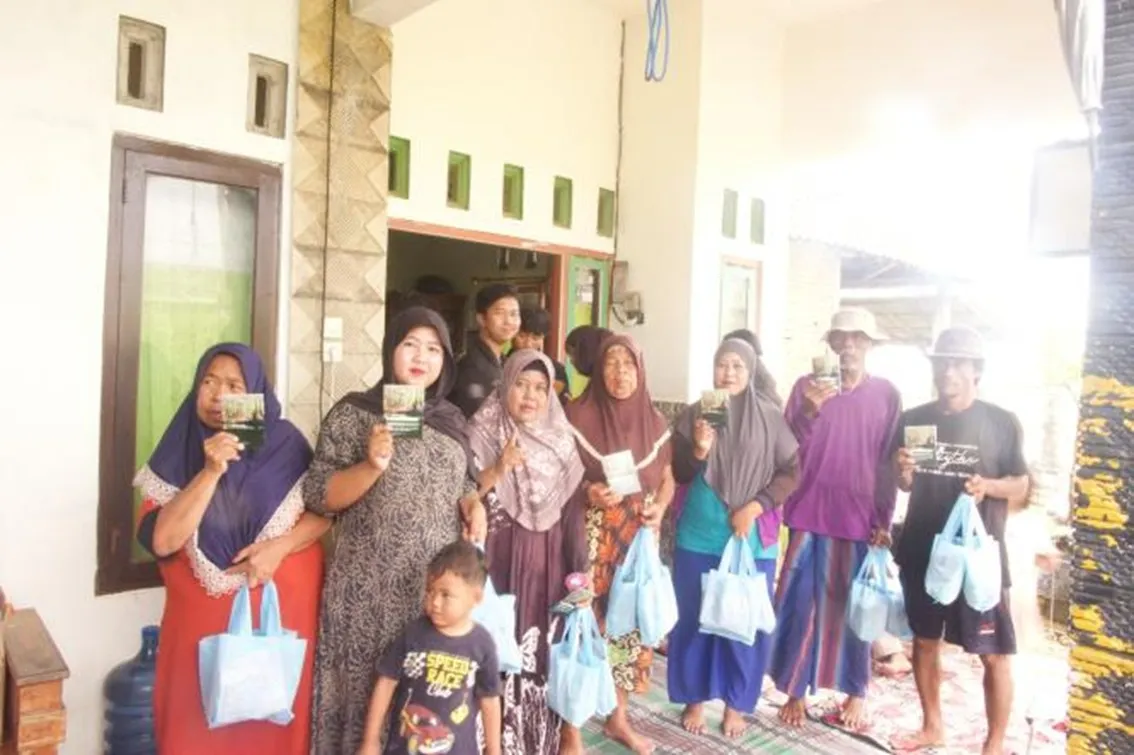Semarang, October 25, 2025 — Students of the Public Administration Study Program, Faculty of Social and Political Sciences, Universitas Diponegoro (UNDIP), conducted an outreach activity themed “Mangroves as a Coastal Disaster Mitigation Strategy” in Mangunharjo Village, Tugu District, Semarang City.
This activity is part of a series of Independent Study programs under the theme “Publik Mangun Mangrove: Disaster Mitigation Education Program and Coastal Environmental Conservation,” which was previously initiated with the planting of 200 mangrove seedlings and a coastal clean-up movement. This program serves as a form of project-based learning that emphasizes the direct application of public administration knowledge within the context of coastal community empowerment and environmental conservation.
The outreach took place at the Secretariat of the Ngabruk Lestari Group (KENARI) at 12.00 WIB, attended by 20 UNDIP Public Administration students, residents of Mangunharjo Village, and representatives of the KENARI community group.
Two main speakers were present at the event: Damaris Bernike Bellastuti, M.A., lecturer of the UNDIP Public Administration Program, and Munhamir, Secretary of KENARI.
In her presentation, Damaris emphasized the importance of cross-actor coordination in coastal disaster mitigation. She explained that the success of mangrove management depends not only on technical aspects but also on collaboration among stakeholders.
“Mangrove conservation cannot stand alone. Synergy among communities, government, academia, and the private sector is required so that ecosystem-based disaster mitigation can run effectively and sustainably,” Damaris explained.

Meanwhile, Munhamir explained how mangroves can reduce the impacts of high waves and soil erosion through their strong roots and their ability to absorb air and store carbon.
“Mangroves play a major role in maintaining coastal ecosystem stability. If communities take good care of mangroves, coastal abrasion and tidal flooding can be naturally minimized,” he said.

Participants also received educational modules on best practices for ecosystem-based disaster mitigation and joined an interactive discussion to design follow-up steps for mangrove conservation in coastal areas.

In response to the event, the Ngabruk Lestari Group (KENARI) expressed their appreciation to the UNDIP students who had contributed to educating the community.
“We are very grateful for the enthusiasm and attention of UNDIP students. Their presence brings new energy to the people of Mangunharjo to continue protecting mangrove forests as a safeguard for life in coastal areas,” said Munhamir.
With rising community awareness, Mangunharjo Village is expected to become a model of a resilient coastal village capable of addressing disaster threats through nature-based and participatory approaches.
This activity reaffirms the role of UNDIP Public Administration students in integrating public policy, environmental governance, and community participation directly in the field — a form of young generation contribution in realizing resilient, sustainable, and empowered coastal areas.

